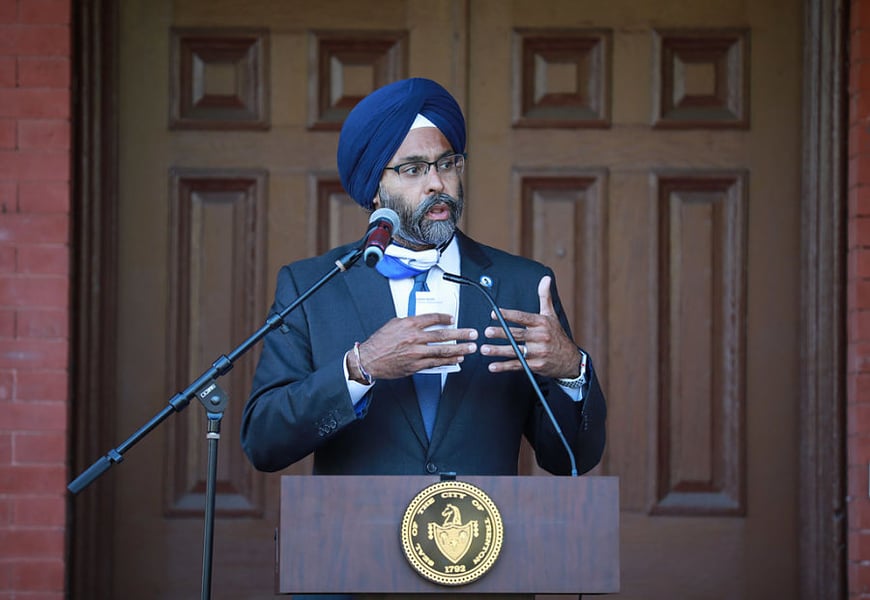

Financial firms must be ‘proactive’ in aligning compliance practices to meet emerging risks and Securities and Exchange Commission investor protection priorities, the agency’s new enforcement chief said this week.
Gurbir Grewal, director of the SEC’s Division of Enforcement, used the broker-dealer standard of conduct, Regulation Best Interest, as an example of how firms must tailor their compliance programs to fit their business models and investment products.
“For example, with respect to Reg BI, firms should recognize that the new regime draws upon key fiduciary principles, and is intended to enhance previous broker-dealer standards of conduct significantly beyond the suitability obligation,” Grewal said in prepared remarks for a Practising Law Institute conference on broker-dealer regulation and enforcement Wednesday. “Armed with this recognition, firms should then give their registered representatives the tools and information that will enable them to identify, disclose, and mitigate conflicts prohibited under Reg BI.”
He warned firms not to just to go through the motions and check compliance off their to-do lists but rather to strive for excellence in adhering to rules and regulations.
“Let me be clear here: I am talking about more than putting together a stock policy and giving a check-the-box training,” Grewal said. “This requires proactive [italics and bold in Grewal’s text] compliance, and this type of approach has never been more important than today — a time of rapid and profound technological change.”
The speech was the first Grewal has given since being appointed in June. He used the occasion to set the tone for the SEC’s enforcement efforts.
“He’s being very clear that they’re going to be aggressive,” said Kurt Wolfe, counsel at Quinn Emanuel Urquhart & Sullivan.
That will translate into requiring brokerages to implement compliance programs for Reg BI that “go well beyond what they had in place for suitability,” Wolfe said. Under Reg BI, brokers must not put their financial interests ahead of their clients’ interests when making investment recommendations.
Earlier this week, SEC Chairman Gary Gensler told lawmakers at an online House hearing that the agency’s examinations and enforcement arms would work to “ensure that the investing public truly gets best interest” from Reg BI.
“If the examination or enforcement division comes in to kick the tires [on Reg BI], you better be in a position to show that you’ve taken proactive steps to get it right,” Wolfe said.
Grewal was previously was attorney general in New Jersey, where he was a champion of the effort to draft the state’s own fiduciary rule for investment advice.
In his PLI speech, Grewal highlighted an enforcement action over the summer involving the client relationship disclosure document — Form CRS — that was part of the Reg BI rulemaking.
In the first penalties related to Reg BI, the SEC fined 27 financial firms for missing deadlines for filing and delivering Form CRS, which outlines a firm’s fees, services and potential conflicts of interest.
The Form CRS action was a “forward-looking enforcement initiative,” Grewal said. “Providing retail investors that essential information is the point of the Form CRS requirement, and we will continue to ensure that firms are satisfying their obligations to do so because that’s what’s required to prevent future investor harm.”
The SEC would set and adjust enforcement penalties to deter future bad behavior, Grewal said.
“Even if a firm or individual hasn’t offended before, if they violate a law or rule for which the SEC has previously and publicly charged other actors in their industry, it may be appropriate for penalties or other remedies to be increased in response to the lack of deterrence,” Grewal said.
He also said firms that repeatedly violate rules will be penalized more harshly than first-time offenders for the same conduct.

Executives from LPL Financial, Cresset Partners hired for key roles.

Geopolitical tension has been managed well by the markets.

December cut is still a possiblity.

Canada, China among nations to react to president-elect's comments.

For several years, Leech allegedly favored some clients in trade allocations, at the cost of others, amounting to $600 million, according to the Department of Justice.
Streamline your outreach with Aidentified's AI-driven solutions
This season’s market volatility: Positioning for rate relief, income growth and the AI rebound
